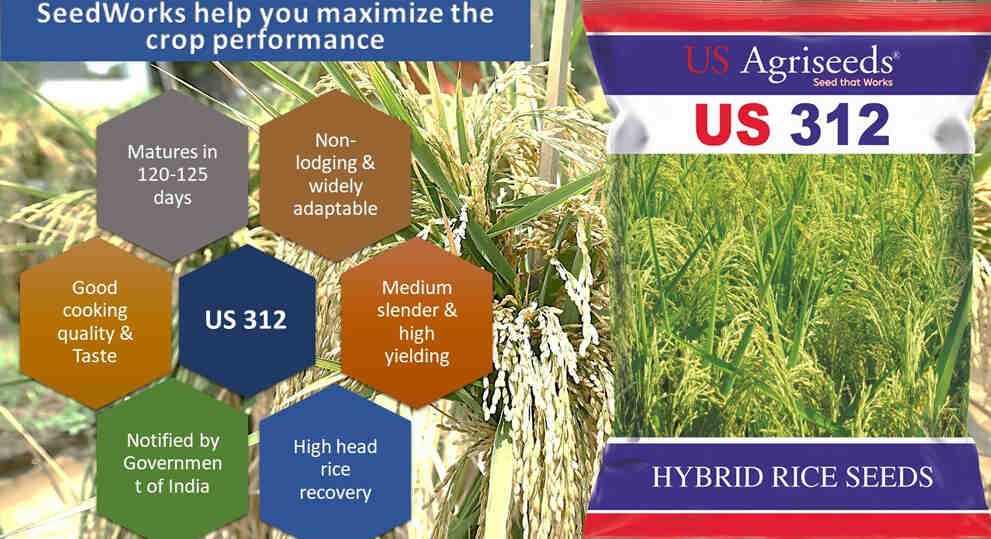India, with its vast agricultural landscape, plays a critical role in global food security. Among various crops, rice stands out as a staple food for a significant portion of the population. The increasing demand for rice due to a growing population and changing dietary preferences has led to the emergence of hybrid rice seed companies in India. These companies are at the forefront of agricultural innovation, developing hybrid rice varieties that can enhance yields, resist pests, and adapt to changing climate conditions. This blog explores the multifaceted role of hybrid rice seed companies in enhancing food security in India.
The Importance of Hybrid Rice
Hybrid rice is produced by cross-breeding two different parental lines, resulting in varieties that possess superior traits. These traits include higher yield potential, better pest resistance, and improved adaptability to various climatic conditions. The introduction of hybrid rice has been a game-changer in Indian agriculture, enabling farmers to maximize their productivity and profitability.
The Rise of Hybrid Rice Seed Companies in India
In recent decades, several hybrid rice seed companies have emerged in India, revolutionizing rice cultivation. These companies, both domestic and multinational, are dedicated to research and development to create high-yield, resilient rice varieties. Their efforts have resulted in significant advancements in hybrid rice technology, making it possible for farmers to achieve higher productivity levels.
Key Players in the Hybrid Rice Sector
Among the leading hybrid rice seed companies in India are names like Bayer Crop Science, Syngenta, and Rasi Seeds. These companies have invested heavily in research and development, collaborating with agricultural universities and research institutions. Their focus on innovation has led to the development of hybrid rice varieties that cater to the diverse agro-climatic conditions in India, ensuring that farmers have access to seeds that best suit their local environment.
Contribution to Food Security
The role of hybrid rice seed companies in enhancing food security cannot be overstated. With the population in India projected to reach 1.5 billion by 2030, the demand for rice is set to increase substantially. Hybrid rice varieties can help meet this demand by boosting productivity and ensuring a stable supply of rice in the market. Additionally, these varieties often require fewer inputs, such as water and fertilizers, making them more sustainable for smallholder farmers.
Technological Innovations in Hybrid Rice Production
Hybrid rice seed companies are also at the forefront of technological innovations that enhance rice production. Techniques such as genetic engineering, marker-assisted selection, and biotechnology have allowed these companies to develop rice varieties that are not only high-yielding but also resistant to diseases and pests. For instance, the introduction of genetically modified hybrids has led to a significant reduction in pesticide use, benefiting both farmers and the environment.
Challenges Faced by Hybrid Rice Seed Companies
Despite the advancements, hybrid rice seed companies in India face several challenges. Issues such as seed adulteration, a lack of awareness among farmers, and limited access to credit can hinder the adoption of hybrid rice varieties. Additionally, the climate crisis poses a significant threat to agricultural productivity, necessitating ongoing research and development to create varieties that can withstand extreme weather conditions.
Government Support and Policies
The Indian government recognizes the importance of hybrid rice in enhancing food security. Various policies and programs have been implemented to promote the adoption of hybrid rice varieties among farmers. Initiatives such as subsidies for hybrid seeds, training programs, and agricultural extension services aim to improve farmers' knowledge and accessibility to high-quality seeds. Collaborative efforts between the government and hybrid rice seed companies can further strengthen this initiative.
The Future of Hybrid Rice in India
The future of hybrid rice in India looks promising, with continued investments in research and development. The increasing focus on sustainability and climate-resilient agriculture will likely drive innovation in hybrid rice varieties. As companies strive to develop new strains that can thrive in changing climatic conditions, the potential for hybrid rice to contribute to food security in India will only grow.
Conclusion
Hybrid rice seed companies in India play a pivotal role in enhancing food security through their commitment to innovation, research, and sustainable agriculture. By developing high-yielding and resilient rice varieties, these companies are helping farmers adapt to the challenges of modern agriculture while ensuring a stable food supply for the growing population. As India continues to navigate the complexities of food security, the contributions of hybrid rice seed companies will be indispensable in achieving a more sustainable and secure future for all.






Comments